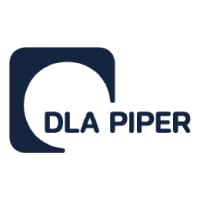

Head of legal and compliance, investment banking | Pareto Securities



Joakim Forsberg
Head of legal and compliance, investment banking | Pareto Securities
Career Biography:
Joakim Forsberg is a Swedish lawyer educated at Stockholm University, a licensed Norwegian attorney (Advokat, in Norwegian), and a member of the Norwegian Bar Association. Forsberg works as in-house counsel at Pareto Securities and primarily assists the firm’s Investment Banking division, including ECM, DCM, M&A, and Project Finance.
Forsberg is also part of the group’s general compliance function and serves as corporate secretary for foreign subsidiaries located outside Norway.
Forsberg previously worked at Nordea Bank, where he primarily focused on financial regulatory matters. He has also worked as an Associate and Senior Associate at law firm Schjødt, mainly within the firm’s Oil and Gas department, but also with M&A, corporate law, dispute resolution, and investigative assignments. He has had a part-time secondment role with an oil exploration and production company.
Forsberg has published several articles and is a co-writer for the law commentary on Karnov for parts of the Norwegian Securities Trading Act.
What are the key projects that you have been involved in over the past 12 months?
Apart from ordinary tasks related to transactions involving the firm, as well as advisory work on regulatory and compliance topics, I would highlight three notable projects I have participated in over the past 12 months. These include active involvement in various working groups within the Norwegian Securities Dealers Association, where we worked to establish industry guidelines for investment firms and standard documents used in Norwegian capital-raising transactions.
Additionally, I played a key role in arranging and delivering a digital training course for over 2,000 individual members of the Association. Finally, I have been involved in the firm’s handling of several significant Norwegian and international disputes, including litigation and arbitration.
Have you had any experiences during your career as a lawyer that stand out as particularly unique or interesting?
So far, I would say that my career has been quite atypical, with cross-border and international work standing out as particularly unique. Born and raised outside Stockholm, Sweden, I started my professional legal career at a Norwegian law firm in Stavanger, the oil capital of Norway, where I spent several years working primarily with international clients within the oil and gas sector. This was followed by in-house roles in Nordic financial institutions based in Oslo, where I have worked alongside colleagues located in countries such as Norway, Sweden, Finland, Denmark, Germany, the UK, Australia, Singapore and the US.
One experience that stands out as particularly unique to me is when we acquired our German branch in 2018, and all the work and effort deployed to integrate it with the rest of the group. It is truly inspiring to see that my colleagues have been able to turn negative results into profit, and I am glad to have played a small part in that process.
What do you think are the most important attributes for a modern in-house counsel to possess?
There are many important skills one should possess, but to highlight four that are particularly important in my organisation: first, the ability to identify legal risks and areas requiring the organisation’s attention. In-house counsel should not expect colleagues to spend much of their valuable time outside their focus areas when there is no immediate upside. Therefore, in-house counsel must be proactive and “find the problems” that they or potential outside counsel should solve.
Second, the ability to quickly provide general guidance across a broad range of legal areas. In-house counsel are typically expected to know something about everything, including recognising when to seek further assistance from outside counsel.
Third, the ability to carry out relevant risk assessments in light of business operations and expectations. Ultimately, it is often the in-house counsel who must recommend or make decisions.
Finally, thick skin and integrity are essential. The in-house counsel role is rarely popular, given the responsibility to point out problems and provide solutions that do not always align with the wishes of all relevant stakeholders.